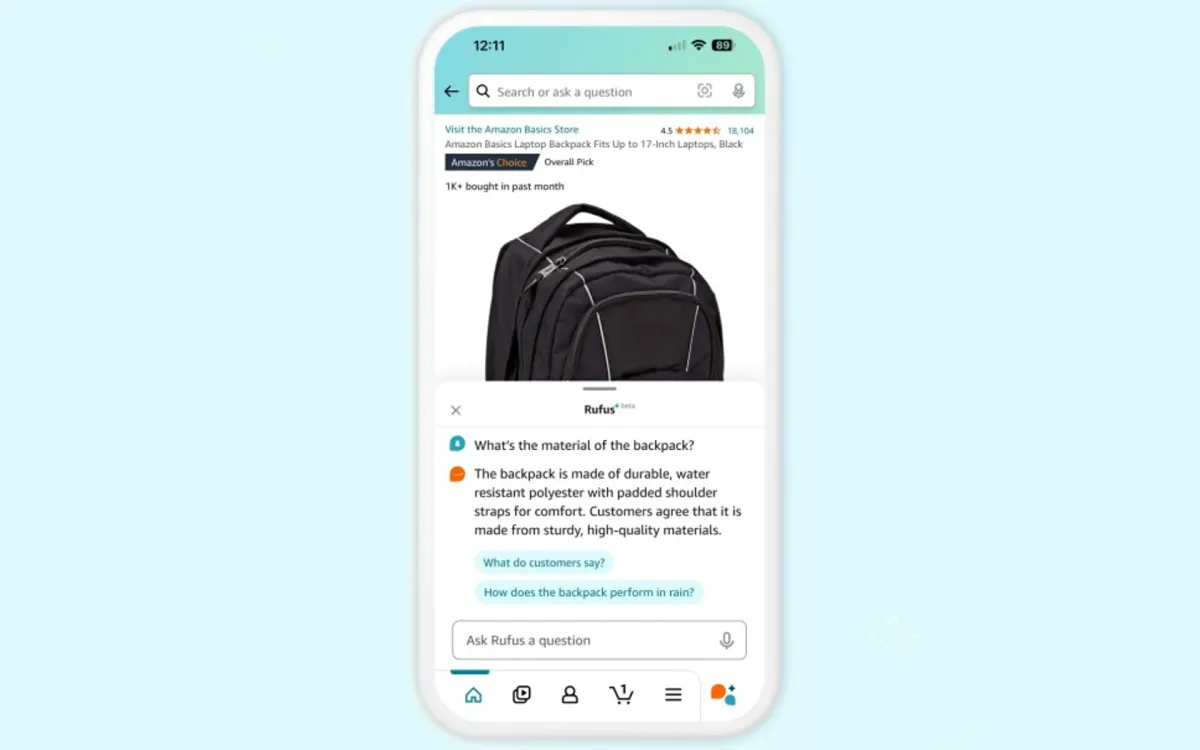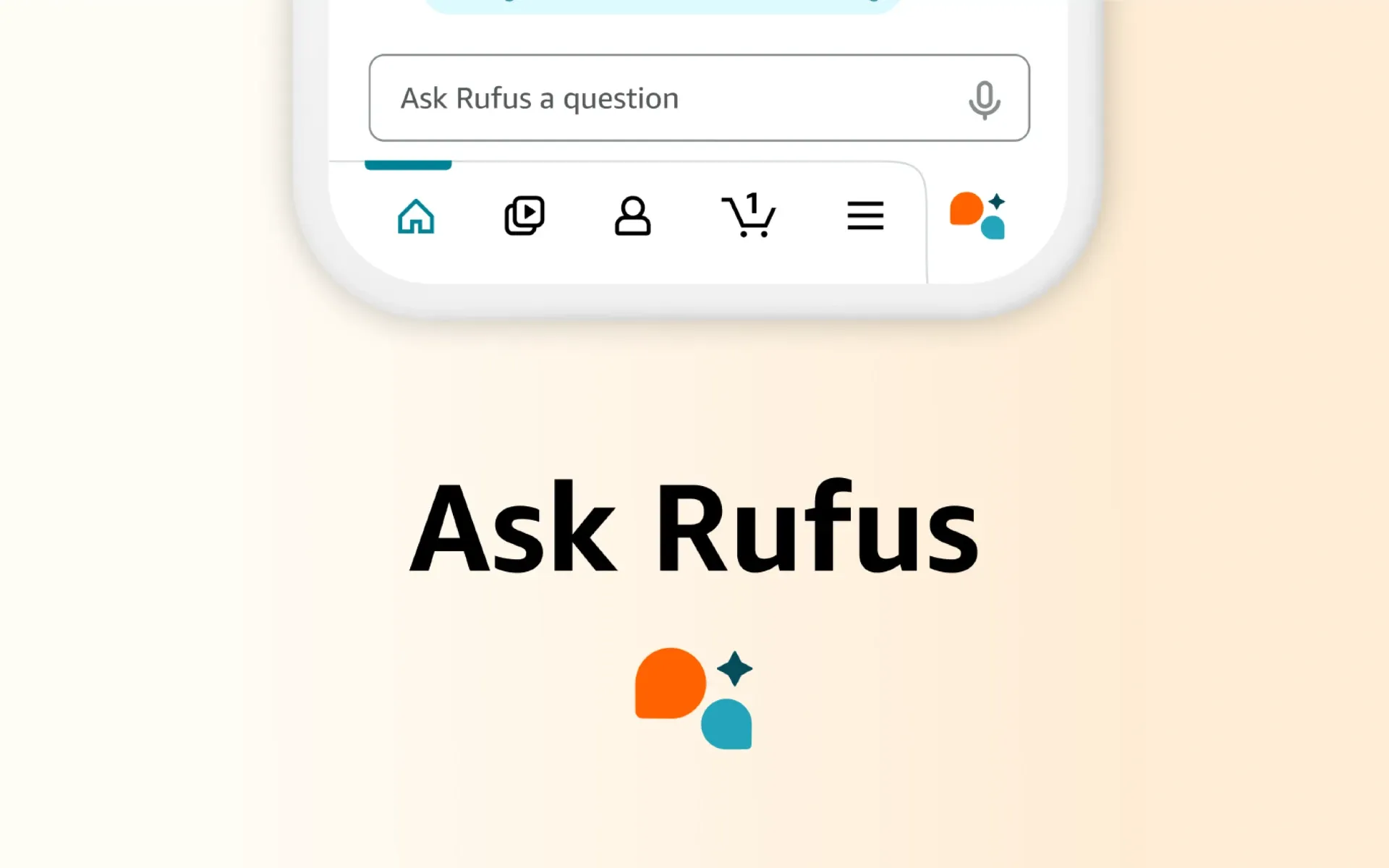
On Friday, July 12, 2024, Amazon.com Inc (NASDAQ:AMZN) expanded Rufus, its AI-powered shopping assistant, to all U.S. customers using the Amazon Shopping app. This rollout comes just days before Amazon's Prime Day 2024, scheduled for July 16-17, and marks a significant step in the company's efforts to enhance the online shopping experience through artificial intelligence.
Rufus, initially introduced earlier in 2024, is designed to assist customers in making informed purchase decisions by answering shopping-related questions directly within the app. According to Rajiv Mehta, Vice President of Search and Conversational Shopping at Amazon, Rufus is an "expert shopping assistant trained on Amazon's product catalog and information from across the web." The AI assistant can provide detailed answers on various aspects of shopping, from product comparisons to recommendations for specific occasions.
How Rufus Works
Rufus utilizes a specialized large language model (LLM) trained on Amazon's extensive product catalog, customer reviews, community Q&As, and web data. This comprehensive training allows the AI assistant to provide detailed and contextual responses to a wide range of customer inquiries. Users can interact with Rufus by typing or speaking their questions into the search bar of the Amazon Shopping app, whereupon a chat dialog box appears at the bottom of the screen.

Key Features and Capabilities
Product Research: Customers can ask general questions about product categories, such as "What should I consider when buying headphones?" Rufus provides comprehensive information to guide the shopping process.
Occasion-Based Shopping: Users can seek recommendations for specific events or activities, like "What do I need for cold weather golf?" Rufus suggests relevant product categories and related questions for more focused searches.
Product Comparisons: The AI assistant can explain differences between similar product types, helping customers make more informed decisions.
Personalized Recommendations: Rufus can suggest products tailored to specific needs, such as "Best dinosaur toys for a 5-year-old."
Specific Product Inquiries: When viewing a product detail page, customers can ask Rufus questions about that particular item, drawing information from product listings, reviews, and Q&As.
Order Tracking and History Assistance: Rufus can help with inquiries related to past and current orders.
Impact on E-commerce and Advertising
The introduction of Rufus to Amazon's entire U.S. customer base could have far-reaching implications for e-commerce and digital advertising. This AI-assisted shopping experience may alter the customer journey and potentially impact how advertisers target customers on Amazon's platform. The ability of Rufus to provide personalized recommendations and detailed product information could influence purchasing decisions and reshape consumer behavior.
However, it's important to note that early tests have shown some limitations. According to reports, Rufus doesn't always provide entirely accurate information, and its recommendations are constrained to Amazon's catalog. This highlights the ongoing challenges in developing AI systems that can consistently deliver reliable and comprehensive information.
Development and Future Improvements
Amazon has invested heavily in AI technology for over 25 years, with applications ranging from personalized recommendations to drone deliveries and checkout-free Amazon Go stores. Trishul Chilimbi, Vice President and Distinguished Scientist of Stores Foundational AI at Amazon, emphasized that the company believes "generative AI is going to change virtually all customer experiences that we know."
The development of Rufus involved extensive testing, with the AI assistant reportedly handling "tens of millions of questions" during its beta phase. Amazon acknowledges that, as with any new AI technology, there may be instances where Rufus doesn't provide perfect responses. To address this, the company has implemented a feedback system where users can rate answers with a thumbs up or down and provide freeform feedback. This user input will be crucial in refining and improving Rufus over time.
Privacy and Data Concerns
As with any AI-powered system that processes user queries and interacts with personal data, questions about privacy and data usage are bound to arise. While Amazon has not explicitly addressed these concerns in their announcement, it's reasonable to assume that the company will need to navigate the complex landscape of data protection regulations and user privacy expectations as Rufus becomes more widely used.
Competitive Landscape
The launch of Rufus positions Amazon at the forefront of AI-assisted shopping experiences among major e-commerce platforms. This move could prompt competitors to accelerate their own AI initiatives to keep pace with Amazon's innovations. It remains to be seen how other tech giants and retailers will respond to this development and what impact it may have on the broader e-commerce industry.
Consumer Adoption and Learning Curve
As with any new technology, there will likely be a learning curve for consumers as they become accustomed to interacting with an AI shopping assistant. Amazon's challenge will be to make the experience intuitive and valuable enough that users incorporate Rufus into their regular shopping habits. The success of this integration could significantly influence the future direction of AI in retail.
Economic Implications
The widespread adoption of AI shopping assistants like Rufus could have broader economic implications. If successful, it could lead to more efficient shopping experiences, potentially increasing sales volumes and customer satisfaction. However, it might also raise questions about the role of human customer service representatives and the potential for AI to influence consumer choices in ways that benefit the platform over the consumer.
The nationwide rollout of Rufus represents a significant milestone in Amazon's AI strategy and could mark a turning point in how consumers interact with e-commerce platforms. As Prime Day 2024 approaches, the impact of this AI-powered shopping assistant on consumer behavior and sales performance will be closely watched by industry analysts and competitors alike.
While the potential benefits of Rufus are clear, including more informed purchasing decisions and a streamlined shopping experience, challenges remain. These include ensuring the accuracy of information provided, addressing privacy concerns, and measuring the long-term impact on consumer behavior and the e-commerce landscape as a whole.
As Amazon continues to refine and expand Rufus's capabilities, it will be crucial to monitor how this technology shapes the future of online retail and whether it truly enhances the customer experience in meaningful ways. The success or failure of Rufus could set the tone for the next generation of AI-assisted shopping experiences across the global e-commerce sector.

